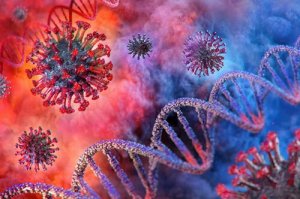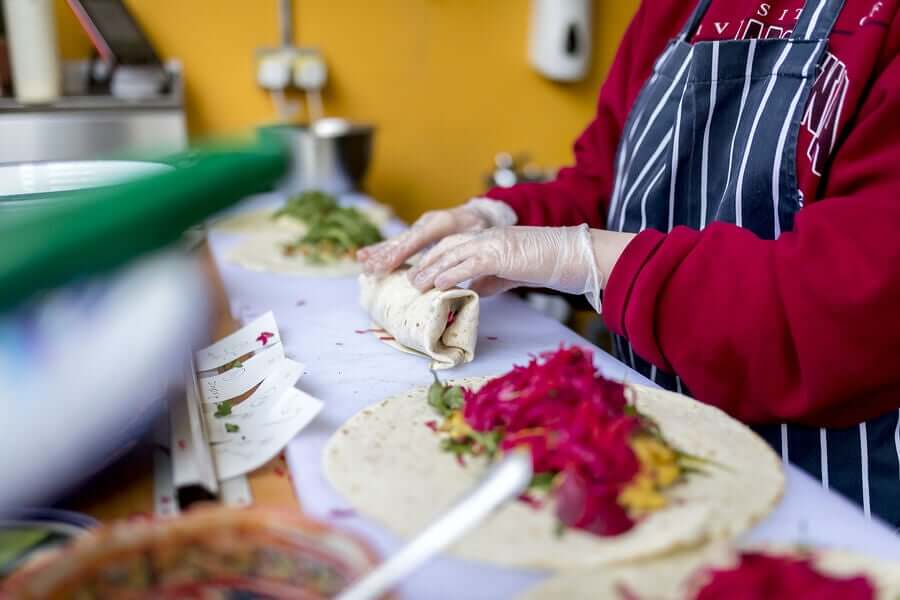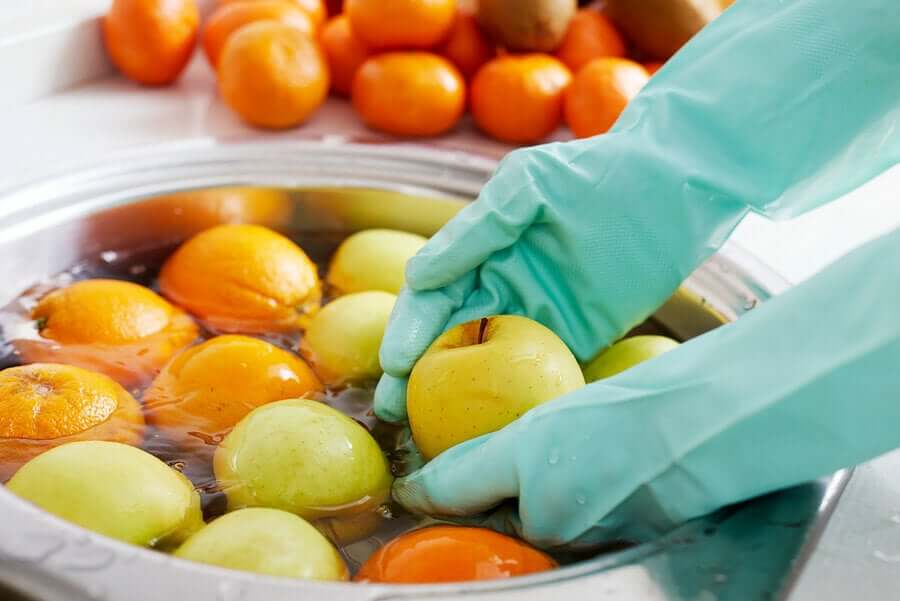How to Wash Fruits and Vegetables During the Coronavirus Pandemic

Being sure to wash fruits and vegetables properly is an important factor in eliminating possible contaminants that they may be carrying. Therefore, it’s important to know the right steps to follow to minimize the risk of contracting an infection.
Fear and worry are indeed greater these days due to the coronavirus outbreak. However, the guidelines we’re going to talk about today are something that you should practice any time you’re going to eat fruits and vegetables. This is true even if you’re going to eat them without the skin.
When we wash fruits and vegetables, we eliminate any remaining dirt and grime they may possess. What’s more, we also need to eliminate any possible remaining pesticides, bacteria, and other pathogens, which can cause intoxications and health problems.
Can coronavirus spread through foods?
Since the beginning of the coronavirus pandemic, the European Food and Safety Authority (EFSA) has been tracking the situation exhaustively. According to reports from this agency, there’s no current evidence indicating that food can be a probable means of transmission of the virus.
“Scientists and authorities across the world are monitoring the spread of the virus and there have not been any reports of transmission through food.”
–EFSA
In the words of the chief scientist of the EFSA, Marta Hugas, they have come to this conclusion based on experience with previous coronavirus outbreaks. This even includes some that are similar to COVID-19, like SARS-CoV or MERS-CoV. Currently, the virus is spreading from person to person, when a healthy individual inhales the droplets that an infected person expels by sneezing or coughing.

What research reveals up to this point is that goods are not a means of spreading coronavirus. Just the same, it’s always important to wash fruits and vegetables properly.
Discover more: Coronavirus Spreads More Easily in Certain Environments
How to wash fruits and vegetables correctly
As we’ve already clarified, it’s highly unlikely for coronavirus to spread through food. However, maintaining certain norms of daily hygiene will help to minimize any risk. First, it’s important to wash your hands with soap and warm water for at least 20 seconds before washing fruits and vegetables.
Also, you don’t need to use soaps or detergent when you wash fruits and vegetables, which could leave residue behind.
So, how do you wash these foods correctly?
We’ll offer some recommendations below.
How to wash different vegetables
- For leafy vegetables like lettuce and greens, separate the leaves and wash them one by one. That way, you’ll be able to eliminate dirt and possible pesticides and fertilizers that may be left on the internet parts of the plant.
- For vegetables with a harder consistency (cucumbers, squash, peppers, etc.) you can use a special brush for washing vegetables. Gently scrub their entire surface area under running water.
- When it comes to cauliflower and broccoli, we recommend cutting them into smaller florets first. Then, place them in a strainer and submerge them in cold water. That way, you’ll be able to clean the internal parts of the plant that you wouldn’t reach without cutting.
- To wash root vegetables, such as potatoes, beets, carrots, or turnips, you can allow them to soak for a short time to soften any dirt. Then, scrub them with a brush or sponge, without detergent, under running water. Make sure to always wash them before you peel.
How to wash the most common varieties of fruits
- Strawberries, blueberries, raspberries, etc. are all very delicate. Therefore, you should place them in a strainer and submerge them for a short time in cold water. Then, rub them with your hands gently and rinse.
- You should always wash fruits with edible skin before you eat them – whether you plan on eating the skin or not. Rinse them under the faucet and rub them gently with your hands. Some examples include peaches, pears, apples, plums, and nectarines.
- In the case of lemons, kiwis, papaya, or other fruits with non-edible skin, you still need to wash them before you peel them. Otherwise, you run the risk of contaminating the inside of the fruit with the knife you use for peeling.
- To better preserve clean fruits and vegetables, you should dry them with a bit of paper towel.

Is using disinfectants necessary when we wash fruits and vegetables?
Once again, it’s very difficult and unlikely for coronavirus to spread through food. Health and food safety authorities, therefore, do not recommend the use of disinfectants when washing fruits and vegetables.
If you still want to use them, then you need to make sure the products are safe to use with foods. What’s more, be sure to carefully follow the manufacturer’s instructions.
What all experts do emphatically recommend is that we scrupulously follow the basic norms of hygiene and food safety. Besides washing fruits and vegetables, we should also put the following guidelines into practice:
- Wash your hands well before and after handling foods. Also, wash utensils and work surfaces thoroughly.
- Keep fruits and vegetables separate from raw meats and fish. Avoid using the same utensils and cutting boards when preparing them.
- Cook and heat vegetables before eating them. If you’re going to eat a salad, make sure to wash all of the ingredients before cutting and serving them.
- Choose fresh fruits and vegetables that are in good condition.
- Don’t forget all of the general preventative measures to avoid the spread of coronavirus.
Keep reading: 5 Fake News Stories about Food
Washing fruits and vegetables is a basic safety measure
This is a guideline that we should always follow before eating and cooking these kinds of foods. This can help protect you from coronavirus, although food is a very unlikely means of probable transmission. At the same time, you’ll eliminate any leftover dirt, fertilizer, and other pathogens that may be on their surface.
This text is provided for informational purposes only and does not replace consultation with a professional. If in doubt, consult your specialist.








